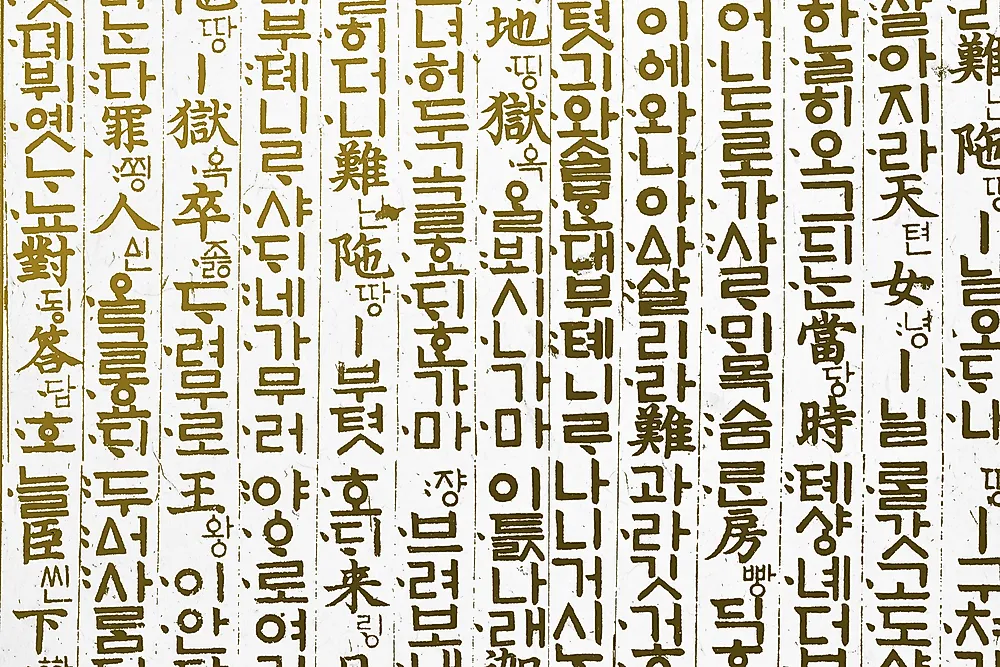What Languages Are Spoken In South Korea?

Korean, also referred to as Hangul, is the national and official language in South Korea as well as North Korea. The language is drastically different from western languages. South Korea is home to close to 51 million residents, half of whom reside in and around the bustling capital of Seoul.
Korean: The Official Language Of South Korea
The Korean language belongs to the the Koreanic language family. The modern form of Korean developed from Middle Korean. This itself had developed from Old Korean which had developed from the kind of speech used in Prehistoric Korea.
The Chinese characters which arrived in the Korean region along with Buddhism were adopted as the language's main script called hanja. King Sejong the Great introduced the writing system currently called Hangul to deal with the inadequacy of hanja. Today, Hangul is preferred over hanja. In South Korea, the language is spoken in various dialects. The Gyeonggi dialect is the most popular of the rest of the dialects, and it is the basis on which the standard variant of Korean is formed. The dialect is widespread in the Seoul National Capital Area which includes the Incheon and Seoul Cities together with Gyeonggi Province. The Jeju dialect is used in South Korea's Jeju Province, and it is different from the Korean dialects used in the mainland. The dialect is regarded as a local language, and it is majorly used by the older people. The Gyeongsang dialects are used by communities in the Yeongnam region. Some of these dialects are tonal unlike standard Korean. The Jeolla dialect is mainly used in South Korea's Honam region including Gwangju region. The Chungcheong dialects are used in the Chuncheong region as well as in Daejeon City.
Other Popular Languages Spoken In South Korea
English
Almost all of Koreans under 40 years have participated in English lessons as part of their schooling. However, due to inadequate practice and the fear of mispronunciation, many Koreans only know basic English phrases. After the Korean War, South Korea embraced global trade with such nations as the US. English has been promoted as a second language and supported by government initiatives. Most of the Koreans who study English have a particular reason for doing so including trade, academics, and business. Few people will use the language among themselves and when they do they will use a particular kind of Korean-influenced English. Most Korean workers in hotels and airlines know a bit of English and are able to interact with international tourists. Tourists are however advised to familiarize themselves with a bit of Korean.
Japanese
The population of the older generation in South Korea speaks Japanese. The majority of the Japanese speakers reside in Busan, which is a short trip to the Japanese city of Fukuoka. The dialect verbalized in Busan bears similarities to Japanese while the Japanese dialect used in Fukuoka exhibits Korean influence.











